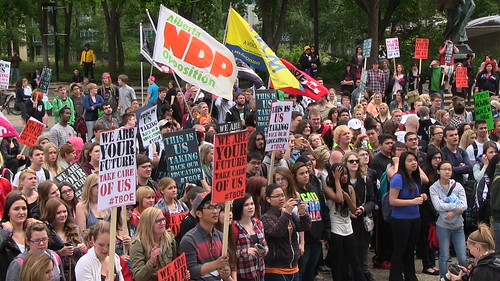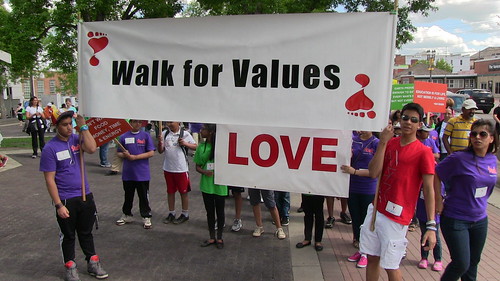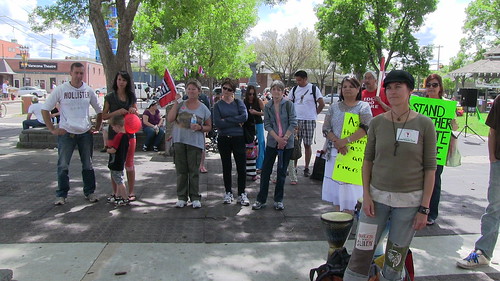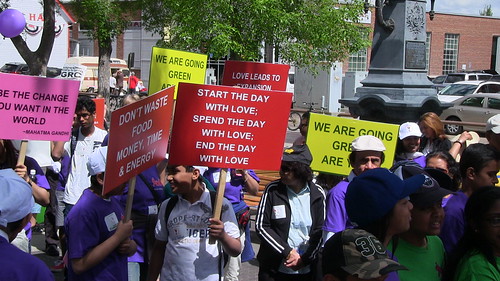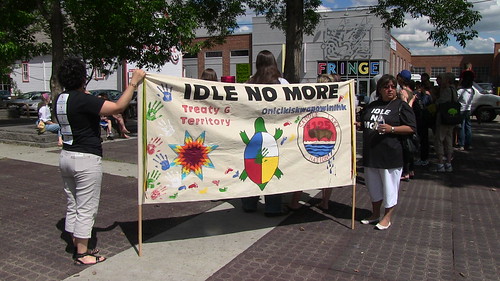Thoughts and musings from a writer, editor, photographer, activist, and musician in Edmonton, Alberta, Canada. I believe that faith and social action are intertwined in efforts to positively motivate change in the society around us. We need to be actively involved in our communities to try to effect this change locally and globally. I also love the local Arts scene. Warning: alternative perspectives and strong opinions ahead. Intimidated yet? Good - read on.
Wednesday, June 19, 2013
Citizen Edmonton
Probably getting the word out there about events and especially getting the media involved. From a personal perspective, I think that my politics often overshadow my persona, in that people who have never met me in real life and only know me from the photos and videos I post, from promoting events, or from standpoints I have taken, expect me to be some kind of crazy, left-wing, granola crunching, tree hugging, hippy. Which is why being invited to an event like Citizen Edmonton was so important to me - because I got a chance to reach out to a different crowd and perhaps dispel some myths about activists. Here are some questions that really stood out for me. What are some of the issues that tend to attract protests and protesters?
It really depends what current events are hot topics. We've seen recently lots of protests concerning education, cuts to programs for PDD, and the huge March Against Monsanto. People are more likely to attend a protest if they feel a personal connection to the issue, which is why we often see larger attendance at rallies that deal with civic or provincial issues. So, a way to attract people to events is to try to highlight that connection; how an issue affects all of us, even if it is something having to do with Canada's foreign policy or something else seemingly more detached from our daily lives. How can people protect themselves legally at protests?
Carry a phone that can record photos and video, and be prepared to use it if you see something going on that does not seem right. Be aware of your surroundings, and if someone else appears to be acting strangely or being an instigator, disassociate from them immediately. How can you tell if you are being effective through your efforts?
This can be measured in different ways. Attendance is one. Getting the message out there is another. Protests seek to attract attention about a topic, so whatever way you can get the message out increases that efficacy. And this is a large reason why I started Radical Citizen Media: to make sure that when protests happen, that they are documented properly so that people can see for themselves what was said, how many people were there, and what the issue is really about - all things that the mainstream media often do not cover in depth. What role does the media play? How do you connect with the media?
Press releases are often sent out to media outlets prior to a protest, at least in my experience. What happens next is often out of our hands. Mainstream media is often run by advertising, so hands are tied when a protest involves a sponsor or advertiser. Independent media, like Radical Citizen Media, does not have those constraints, but we also don't have the resources, so it can be a Catch-22. However, we do have an effect on the media, because in situations where, for example, attendance is under-reported, we use our photos and videos to show what actually happened, and this has resulted in retractions. What are the three biggest obstacles in the activist community?
Communication, or the lack thereof - misunderstandings and other inter-personal situations often result in certain groups of people or organizations not speaking to each other or preventing them from working together effectively.
Organizers being disorganized - making sure people know what they are responsible for doing and seeing that it gets done.
Becoming activist elitists - only hanging out with other activist, only going to activist events, cutting ourselves off from the rest of society where we seek to effect change: this is very counter-productive. I am going to whip out my chequebook and write three cheques. Where are the biggest needs?
I could not answer that effectively without knowing the financial situation of ever non-profit in Edmonton, but I would encourage someone to contribute to whatever organizations they are passionate about rather than just seeking out non-profits based on financial need. That being said, there are also many organizations that have needs beyond money - inner city organizations like Bissell Centre or The Mustard Seed often need practical items. I was far too busy to take photos or video at Citizen Edmonton, but several professionals were there to take care of that. I'll post them when they become available. On a final note, interVivos made an announcement that it now has a forest in Manning, Alberta. The trees will be named for the people who speak at event, and the seven of us who were panelists last night are the first seven seedlings. I hope to get out there one day to visit my tree! Maybe I will even hug it.
Taking Back Our Education
Last week, I attended a rally at the Alberta Legislature concerning cuts to education, organized by high school students. Taking Back Our Education saw students abruptly leave classes at 11 a.m., board buses, and head to the Legislature.
Aided by several unions, #TBOE (as it was also called) was a huge success. Hundreds of students and those in solidarity filled the area around the fountain. It was a moment where I could really feel my age. It was also a moment that caused me to reflect upon how I have ended up in life where I am now.
Many people know who I am and what I do, but don't know much about my background. I graduated from the University of Alberta with a B.Ed in Secondary Education (English major and Music minor). I wanted to become a junior high Language Arts teacher. Although I was already into writing and photography, and had actually been doing those things professionally as early as high school and throughout university, I viewed teaching as stable and something I could fall back on if my writing career did not pan out.
Well, there is an old Yiddish saying along the lines of "People make plans and God laughs." And I am sure the Almighty viewed this one as a gooder. I graduated in the mid-90s, in the midst of the Klein government's ravages to education. I, like numerous of my classmates, never made it into a classroom. There were simply no jobs to be had. Those who were lucky enough to find a job often lost it if they did not yet have their permanent contract.
Fifteen or so years later, the Conservative government is still in power and are responsible for more education cuts which will result in the loss of teaching jobs. I can empathize with those young teachers and those who are just graduating with their B.Ed degrees about the uncertainty of their futures.
On the silver lining side of things, those of you who appreciate what I do should thank the Conservative government for the fact I am the activist I have become. If I had landed a teaching job, I probably would not have the time to go out and document protests against all the incredibly destructive things this government has done. And the sheer number of rallies I attend are testament to the fact that this government does a lot of really destructive things.
Wanting to become a teacher should not be a pipe dream. Cutting teaching positions equates to larger classroom sizes, lack of personal attention to students with special needs, and just a lower quality of education overall. We apparently have a government that does not realize that its greatest asset is not actually the environmentally destructive tar sands. It is our future generations. Attending #TBOE gives me hope that a generation of voters (most of the students were in grade 12, so were 18 or almost 18) is coming up who will really be able to effect some tangible changes in the near future.

